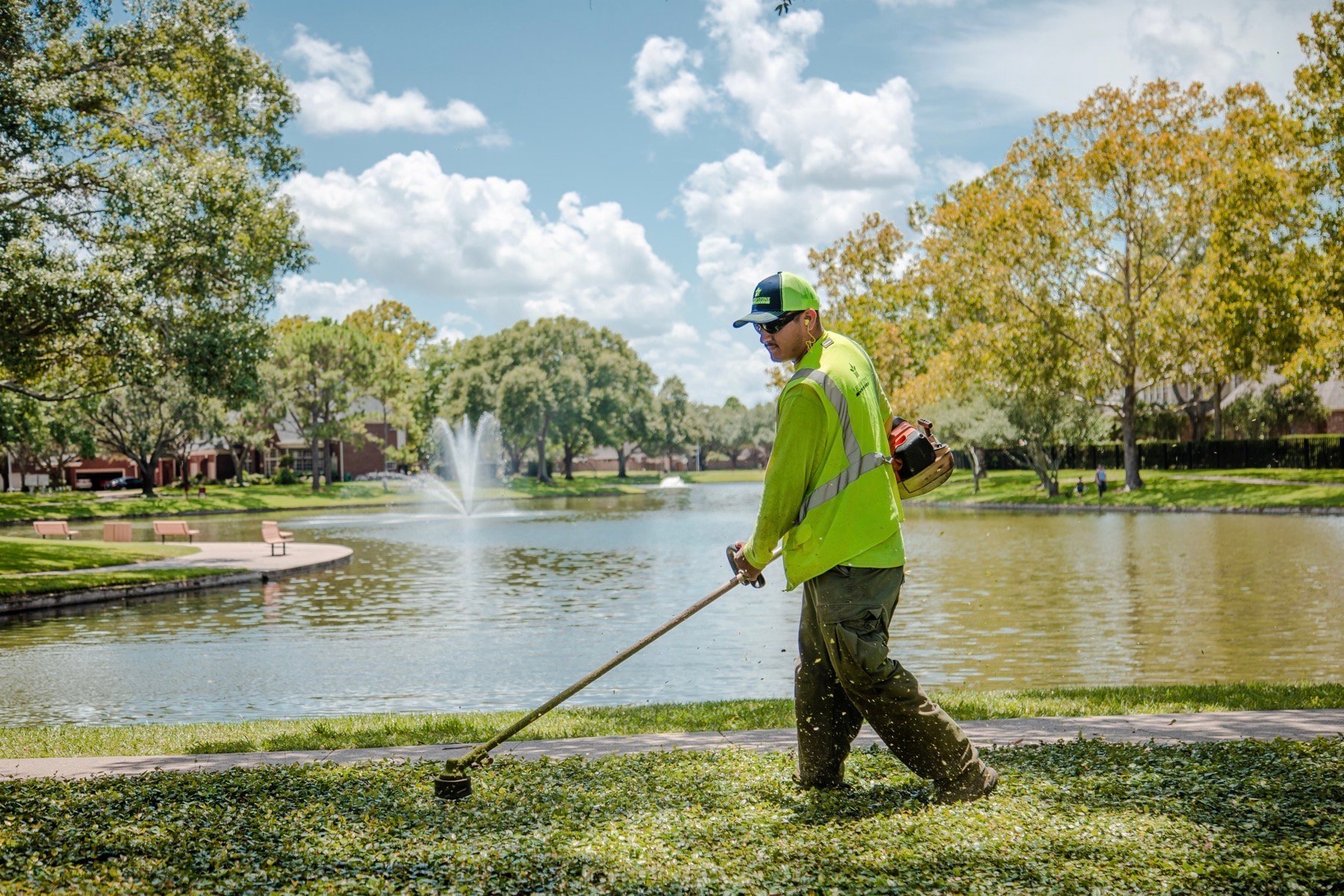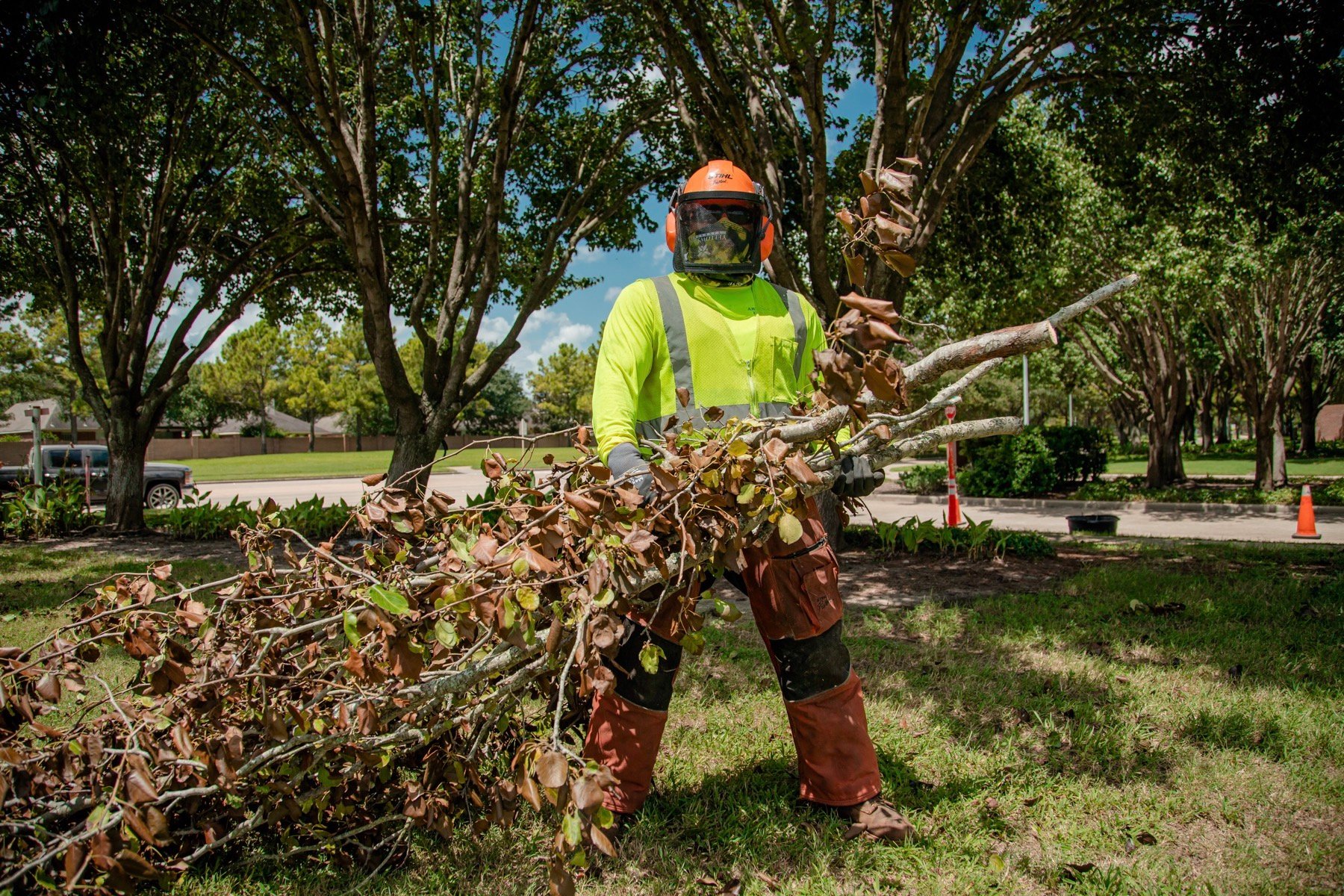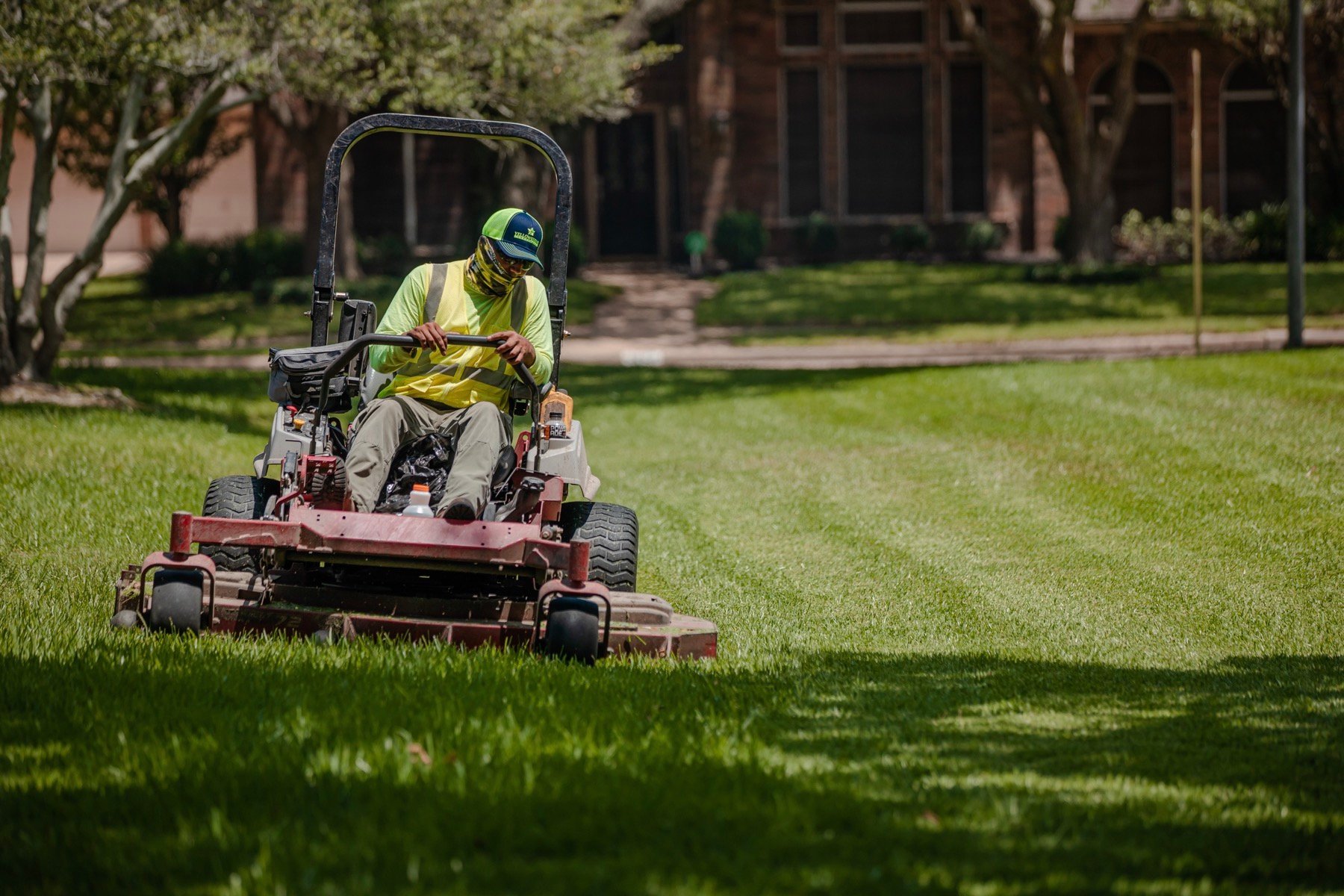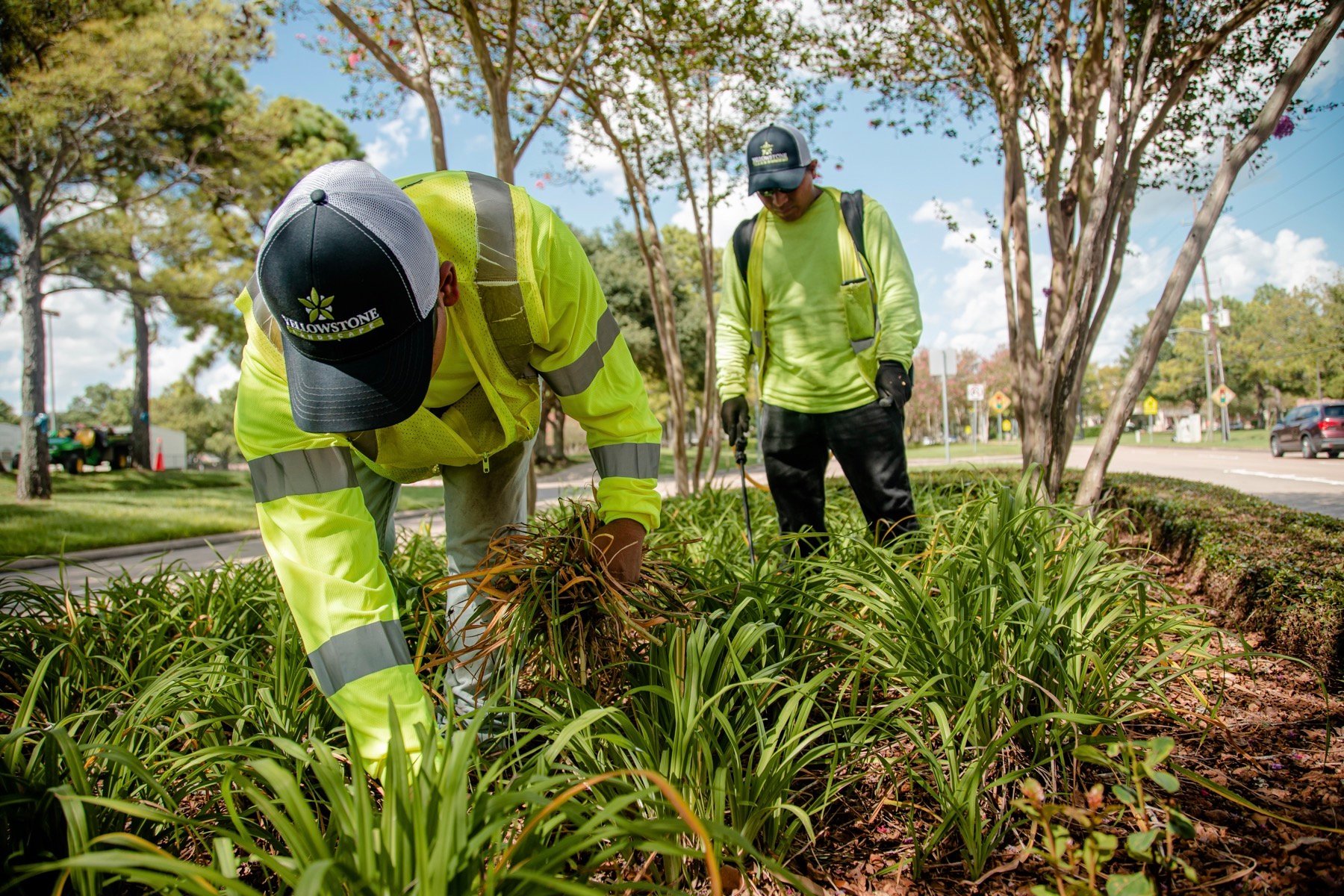Taking the time to make sure that you fully understand any contract before you sign it is important. But too often, we hear about people failing to read documents in their entirety. They don’t ask questions about things that need to be clarified and don’t ask to include important items that can sometimes be missing entirely.
Unfortunately, this often leads to very difficult situations later on, once the contracted work has begun. We never want to see anyone go into a professional partnership without fully understanding what’s to come. You’re only setting yourself, your community, or your property’s landscape up for problems down the road.
At Yellowstone, we believe that having a full understanding of your landscape maintenance contract will help set you up for success as you begin a partnership with your commercial landscape provider. That’s why we’re providing this resource with everything we think you ought to know about a commercial landscape maintenance contract. Because the time to understand and ask questions is NOW—before you sign on any dotted line.
Have a Clear Understanding of What Services are Included in Your Monthly Billing Cycle
First and foremost, your landscape maintenance contract should describe what services are included and define the monthly billing amount for those services. The contract should also detail what’s not included and what the price for those services will be if they’re added.
The area where this has the potential to cause the most confusion are those services that are not needed on the same schedule as your regular maintenance tasks (mowing, edging, weeding, etc). There are different schools of thought on whether it makes sense to pay for services like mulch and flower installations throughout the year (broken down into monthly payments even though they’re not performed every month), or to just pay for them at the time they’re performed. 
The key is to understand what you’re agreeing to. It'd be a very difficult conversation if you believed that you’ve been paying for mulch and flowers all year but you’re agreement didn’t include those services—and that money is actually an additional expense, due at the time of installation.
At Yellowstone, we never want misunderstandings like this to occur. Nobody likes surprises! So, all services - both those in contract and those outside the contract - are clearly defined in our landscape maintenance contract, which we actually call our “landscape maintenance agreement.” We strongly believe in transparency and making sure that everyone, on both sides, fully understands what they’re agreeing to.
We’ve seen this situation occur with other vendors too often, and we know it can be a major shock for a client. That’s why we stress the importance of understanding what you’re paying for in the monthly billing cycle, as well as what you’re not paying for and what might be owed later.
Be Sure to Clearly Understand Who is Authorized to Make Purchasing Decisions on Behalf of Your Property
Another area where we sometimes find confusion is when it comes to authorized decision makers. If there are going to be requests for your vendor to perform additional work outside of what is clearly stated in the contract, then your vendor must clearly understand who is authorized to approve those estimates and enhancement proposals. This can become a murky and awkward situation for a vendor when an unauthorized decision maker calls the landscaping company directly to request additional services, on behalf of the property.
To mitigate confusion, make sure that your contract clearly defines who the decision makers are and what powers they have to approve work requests.
Most commonly, the only person authorized to approve additional cost proposals is the property manager. But sometimes an HOA Board President or commercial property owner also requests to be authorized to approve purchasing decisions. If they are, it needs to be clearly stated in the contract.
It’s also important to consider what happens if the authorized decision maker is away or unable to be reached when a decision needs to be made in an emergency or time sensitive situation. Who is second in charge? This hierarchy of decision making is just as important to define in the commercial landscape maintenance contract.
A common example would be if the property manager is the only authorized person to make purchasing decisions and they’re on a vacation at the time that storm damage occurs, who is authorized to step up and make purchasing decisions during the cleanup process in place of the property manager?
This should all be decided ahead of time and written into the contract so that there are no questions when it comes time to act.
The Commercial Landscape Maintenance Contract Should Clearly Define Service Areas and a Service Schedule
It’s also essential that your commercial landscape maintenance contract clearly defines the service areas on the property and includes a service schedule. There shouldn’t be any questions about where or when the vendor should be working once the contract begins.
In the case of a community association, we want to avoid residents calling the board or even talking to the landscaping company directly, inquiring about an area on the property that may not be mowed as often as they think it should. The contract should clearly define all areas included in the agreement, and the frequency of services for each area.
One way to prevent confusion here is to make sure that your landscape professional includes important details like service frequency, scope of services, and a map that clearly defines what you and they mutually agree they are responsible for. Yellowstone Landscape’s standard landscape maintenance agreements include all of this for every property we serve.
Looking at the Clauses and the Small Details in Your Commercial Landscape Maintenance Contract
We know that overly detailed contracts can be time-consuming to read, but all of that information is there to protect you and your landscaping company, so it’s important to take the time to understand it all.
At Yellowstone Landscape, there are a few clauses in our landscape maintenance agreements that can be mutually beneficial for both the landscape vendor and the client. Let’s look at a few and why they’re so important.
Automatic Renewal
First up is the automatic renewal. We include automatic renewals in our agreements because we’ve found that it saves time and headache for our clients. It allows them to forgo renegotiating their landscape service contract each year. It also ensures that there is no interruption of service and gives them the ability to secure our services for another year, without any extra effort.
On our end, it also eliminates confusion when our contracted 12 months are up about whether we keep your property on our service calendar, or if we have to wait for to renegotiate your service terms. Assuming that all has gone well with the relationship and you’ve been happy with the landscaping services, an auto renewal just keeps everything moving and takes the hassle out of the annual service renewal process for everyone.
Automatic Price Adjustments
We also include an automatic price adjustment in our standard landscape maintenance contracts. In most cases, the adjustment means an increase of 3 to 5 percent each year. How can we possibly know that our prices will go up each year? It’s based on data from the past twenty years, which tells us that our average cost of labor alone has risen about 3 percent every year—and that’s just labor. There is also fuel, equipment, and other prices that naturally rise each year.
By being upfront about the cost increases that we know to be a fact in doing business, we’re making it easier for our client to plan far in advance for these adjustments, so that we can continue to offer them the best possible services, while also paying our team members a fair living wage and offering them necessary benefits. 
Once understood, we find that the vast majority of clients that we work with appreciate this kind of upfront transparency about future costs of service, because it allows them to plan ahead for their budget. We’ve heard the horror stories about landscaping companies that lock in pricing for a year or two, then come back to their clients with huge increases later on. This leads to a rushed RFP process and creates unnecessary headaches for both sides.
Because we have a full understanding of our costs we can keep you informed and help you create a budget that accounts for changes in our industry that may impact your budget. For us, it’s all about transparency and preventing unpleasant surprises down the road.
Right to Correct
Finally, the last important detail that we include in our landscape agreements is a process for our clients to follow when they have an issue with their landscape service. As much as we do our best to keep your property’s landscape looking its absolute best, we’re dealing with living and growing organisms as well as Mother Nature. We can’t control drought nor can we control a sudden pest infestation. We need time to deal with the “unexpected.”
So, our right to correct process simply requests that our clients give us 30 days to correct any problem that they bring to our attention. If for any reason we cannot correct the problem to their satisfaction, or get it back on track within 30 days, then the client has the right to cancel our service without financial penalty, regardless of our contract’s expiration date.
Sometimes referred to as “termination for cause” this right to correct process gives you and us a clear path to follow in the event that you’re not happy. It helps to define a process that we will follow to help rectify the situation. If you’re not happy, then this is what should happen next. It’s another way that confusion is prevented on either end.
But it also protects us, as a responsible vendor from being terminated without any cause, other than perhaps another vendor offered to come in and do the work at a cheaper rate, without going through a proper qualification process.
In closing, this relationship between the property and its vendor is a partnership and should be equally fair to both sides. There are terms and conditions that both sides must agree to. That’s why we ask our clients to sign an “agreement”, not a “contract”. We’re willing to invest our time, resources, and energy into your property in return for a good faith promise that you will value our investment fairly and treat us as a partner in your success. This is something that we’re fortunate to have with the vast majority of our clients today.
Getting the Most Out of Your Landscape Maintenance Contract
We believe that the more detailed and the more transparent a landscape maintenance agreement is, the better. Clarity on the front end of a partnership is critical to prevent misunderstandings and frustration on the back end. Once the work is underway, you want to make sure it proceeds as smoothly as possible.
At Yellowstone Landscape, we want you to see us as a trusted partner in landscaping and be able to get the most out of your agreement with us. Ultimately, that translates to getting the most out of your investment, and we know that’s a big deal.
You’re spending hard earned money to keep your property looking and performing its best and you deserve to know exactly what you’re getting, without a ton of questions after the work is underway. At Yellowstone Landscape, we are available to guide you in the process of creating a contract that will get you the maximum return on each dollar spent in your landscape.
Are you looking for a commercial landscaping company that will guide you on landscape contract items in an honest and transparent way? Request a consultation today. We’ll meet to learn more about your property and its challenges and come up with a comprehensive plan to take care of all of the details for you.


